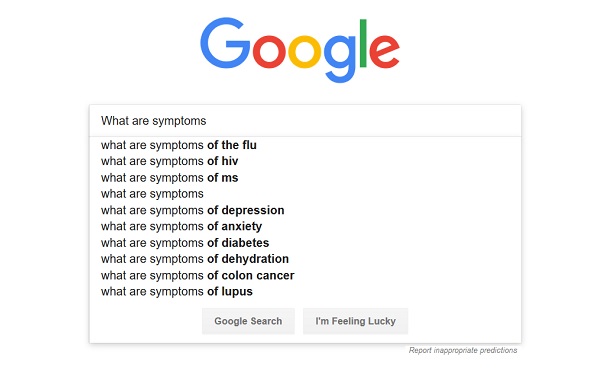 “Knowing what patients look for before visiting an ED can help us anticipate their needs and direct them to the best sources of care,” says lead author Jeremy Asch.
“Knowing what patients look for before visiting an ED can help us anticipate their needs and direct them to the best sources of care,” says lead author Jeremy Asch.
Spurred by the rise of sites like WebMD, people have increasingly turned to Google and the web to self-diagnose their health woes. And as it turns out, what they're Googling may actually be a good predictor of whether they're about to make a trip to the emergency room.
A new study, conducted by researchers at Penn Medicine that tracked 150 people's internet activity in 2016 and 2017 found that health-related searches doubled in the week before visiting the ER.
More than half of the participants searched for clinical information, such as symptoms, in the week before going to the ER. About 15 percent looked up hospital locations.
Related: Initiative aims to introduce consumers to telehealth during cold and flu season
“Even though we're in the early stages of this research, we've learned a lot about the questions patients ask before making the decision to visit an emergency department (ED), as well as questions they have about their care after their visit,” said lead author Jeremy Asch of the Penn Medicine Center for Digital Health. “Knowing what patients look for before visiting an ED can help us anticipate their needs and direct them to the best sources of care. And knowing what they search for afterward tells us how we can communicate better and help patients on their paths.”
The searches offered a window into how much patients know or understand the conditions they're dealing with. In one case highlighted in the report, a patient Googled “how large is a walnut” in an apparent attempt to understand the description a doctor had given her of her tumor.
“The physician caring for that patient might have believed effective communication took place,” said Asch. “But if the patient then had to look up the two key terms—'walnut' and 'fibrous tumor'—it's clear that the patient communication wasn't effective enough.”
Other studies have showed that people's Facebook posts can predict prescriptions for depression medication.
While there roughly half of the patients approached consented to having their search results tracked for the purpose of research, it's unclear to what extent internet behavior analysis can become a mainstream medical practice. At the very least, however, this study and others will be able to help the medical world better understand how to communicate with patients.
Read more:
© 2025 ALM Global, LLC, All Rights Reserved. Request academic re-use from www.copyright.com. All other uses, submit a request to [email protected]. For more information visit Asset & Logo Licensing.







